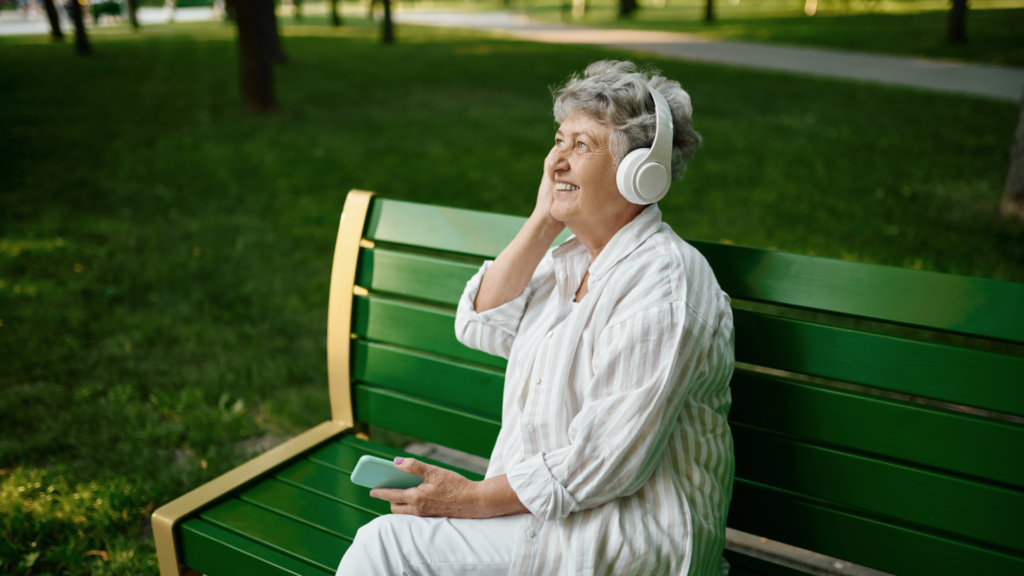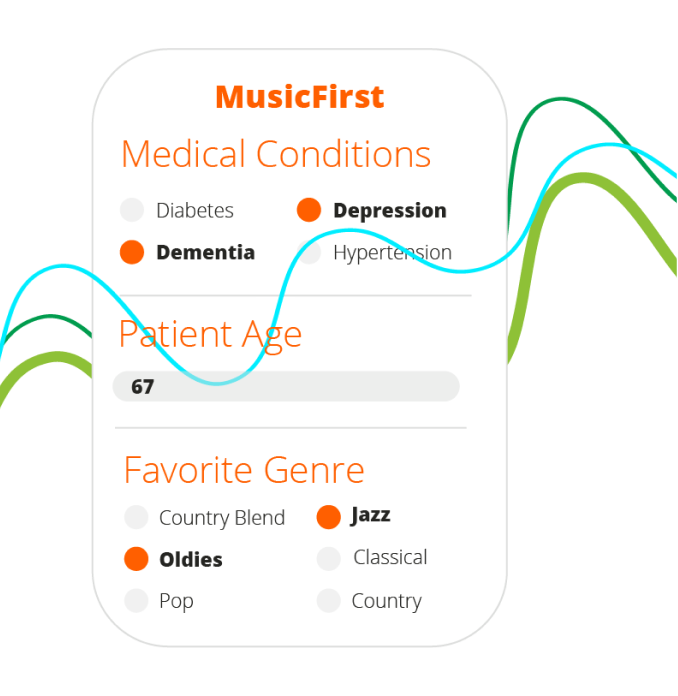The Benefits of Music for Older Adults

Music as a Therapeutic Tool for Older Adults
Music engagement is increasingly recognized as a valuable tool for enhancing the well-being of older adults. Beyond just entertainment, music serves as a therapeutic tool that can reduce stress, alleviate loneliness, and improve overall mood. For older adults, especially those facing challenges like dementia or limited mobility, music can help unlock memories, elevate mood, and bring a sense of joy and engagement that might otherwise be lacking in daily life.
Exploring the Health Benefits of Music
According to the National Institutes of Health, music has the power to evoke strong positive emotions and elevate your mood. Music can lower your body’s level of cortisol, a hormone that can contribute to feelings of stress and anxiety. It can also trigger other chemical reactions in the brain, stimulating positive feelings.
The positive effects of music on the brain are well-supported by research, particularly in its ability to promote mental and physical health. Music stimulates a range of brain areas involved in sensation, movement, and emotion, and releases chemicals that foster connection, enhance mood, and even recall memories. Evidence shows that music can improve conditions like dementia, depression, and pain management. Learn more about music and health from the NIH here.
Improved Sleep, Engagement, and Reduced Agitation Through Music
In a survey we did at Silverado Senior Living, the positive impacts of music were evident. For example, the implementation of Coro Health’s MusicFirst program led to a 54% improvement in residents’ ability to wake up and a 67% increase in ease of falling asleep. Music was also found to engage residents, with a 47% increase in participation and an overall decrease in agitation by 34%. Dining experiences notably improved as well, with 100% of staff reporting a more positive dining environment and increased appetite among residents.
Silverado caregivers shared their experiences, noting the profound effect of music on residents’ daily routines. One caregiver highlighted how a resident, previously reluctant to eat, was able to “clean his plate” with music playing in the background. Another caregiver shared how music helped residents fall asleep more peacefully, easing the nightly routine for both residents and staff. These stories demonstrate how music fosters a comforting and joyful atmosphere that benefits not only the residents but also their families and caregivers.
Improving Well-Being with
Coro Health’s MusicFirst Program
Coro Health’s MusicFirst program brings these benefits directly to senior living communities, offering a curated selection of therapeutic music tailored to individual preferences. With MusicFirst, caregivers can create a supportive, engaging environment that promotes relaxation, engagement, and emotional well-being for older adults.
